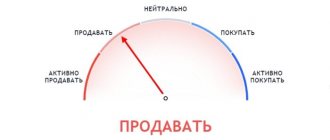Economy
07:00, 09/15/2017 15 Subject: Cryptocurrency boom
Interview with the head of the interdepartmental group of the State Duma of the Russian Federation on assessing the risks of cryptocurrency turnover, Elina Sidorenko
Photo: Oleg Tikhonov
China, which many call the “driving force of Bitcoin,” is gradually tightening conditions in the cryptocurrency trading industry: first it took ICOs, and a few days earlier local Bitcoin exchanges came under attack. What could be the reason for this position of the PRC? Are the Chinese authorities really hostile to cryptocurrency? What is Russia's position regarding this area? Why do our officials praise cryptocurrency, and the Central Bank compares it to a “bubble” and a “gold rush”? Should Russians invest in cryptocurrency or are the risks too high? Elina Sidorenko, Doctor of Law, head of the interdepartmental group of the State Duma of the Russian Federation for assessing the risks of cryptocurrency turnover, answered Realnoe Vremya’s questions.
“China has taken a pause to develop a legal framework for regulation”
— Until recently, China was called the main driving force of Bitcoin, but now China is banning ICOs and, finally, dealing the “final blow to the cryptocurrency trading industry” by closing Bitcoin exchanges. Elina Leonidovna, what do you think is the reason for this?
— China has always reacted very sharply to changes in the crypto market. In 2016, increased investor interest in local crypto exchanges was met with a similar ban coming from the People's Bank of China. This led to an outflow of people from the country and a decrease in the exchange rate of Bitcoin, after which the policy was greatly changed. It is important to understand that China is one of the main producers of cryptocurrencies - about 40 percent of the mining market comes from this country. In this regard, a ban on any ICO in the future could lead to very disastrous consequences.
In my opinion, the ban, issued not at the level of law, but at the level of recommendations of the People's Bank, indicates that China has taken a pause to evaluate this issue and develop a legal framework for regulation. This also suggests that China is not ready for the spontaneous development of the market, which was evident at the stage of active commodity exchange. Now China is interested in professionalizing this market - to do this, it needs to define at the legislative level what cryptocurrency and ICO are, and also decide whether individuals can act as investors in projects of this kind. I believe that after this China will become a power with a completely different, higher level of development of the crypto market.
If we rely on Eastern philosophy, then China chose the famous principle of Confucius, the meaning of which is as follows: when everyone is standing, you run, when everyone is running, you stand. China stopped to develop good regulations for itself, and then continue to develop this topic at a qualitatively new level.
“The ban, issued not at the level of law, but at the level of recommendations of the People’s Bank, indicates that China has taken a pause to assess this issue and develop a legal framework for regulation.” Photo bankofchina.com
— That is, there is no talk of any “rejection” of cryptocurrencies by the Chinese authorities, which some experts talk about?
- Of course not. The Chinese authorities have always been particularly repressive in relation to clearly unacceptable things that pose even the slightest threat to the economic development of the country. Suffice it to recall the mass executions of corrupt officials: according to independent estimates, about 10 thousand people have been shot since the beginning of the 2000s. Therefore, if China allows something or treats it leniently, this indicates that it is interested in this story. And the 40 percent of the mining market mentioned above says a lot.
Elina Sidorenko: “Bitcoin, which has completed its emission, will remain a kind of “gold standard”
“People hear that a person invested money and received 30 thousand percent profit.
As a result, people have a desire to give their last there" Photo: ©Ilya Pitalev, RIA Novosti " PEOPLE, HAVING FORGETED ALL THE CONSEQUENCES OF MMM, ARE BEGINNING TO GO TO NEW PYRAMIDS"
- Cryptocurrency is a relatively new concept. This word has recently been increasingly pronounced from high stands, but the overwhelming majority of the population does not really know anything about this “new money”. Do you think there is a need for outreach work among citizens?
– According to surveys, according to the most optimistic estimates of sociologists, about 40 percent of the Russian population knows what a cryptocurrency is. According to less optimistic ones, from 10 to 30 percent. Of course, people should know about this, if only for the simple reason that they have only fragmentary information and exclusively in the context of positive perception. People hear that a person invested money and received 30 thousand percent profit. As a result, people have a desire to give their last there. This summer there was a serious jump in the prices of cryptocurrencies, especially bitcoins. And in Moscow, a fact was recorded - people withdrew their savings, on average this amount was about 30 thousand dollars, and bought cryptocurrency with them: the queue for the purchase of bitcoins in the main illegal exchangers was scheduled for two months in advance.
In fact, this is scary, it suggests that the crowd effect is working and people, forgetting all the consequences of MMM, begin to rush into new pyramids. They must immediately be explained that cryptocurrency is a high-risk instrument that does not guarantee any growth, since it is outside the legal framework and has high volatility. These two circumstances, as well as the huge number of scammers who are always close to such economically beneficial tools for them, are arguments in favor of increasing the literacy of the population in terms of cryptocurrencies.
We are now experiencing a very interesting imbalance. On the one hand, some federal television channels say that cryptocurrencies are a very interesting new profitable business, while others say that you absolutely cannot invest in them, because they are financial pyramids. As a result of such inconsistency in the presentation of material, people have an unambiguous urge: “They want to stop me because this is a very profitable process and I must participate in it.” Therefore, on the contrary, in this version, criticism of the ICO (Initial coin offering, “initial coin offering” is a form of attracting investments in the form of selling investors a fixed amount of cryptocurrency created specifically for the implementation of a startup - editor’s note ) and the cryptocurrencies themselves leads to the fact that people are starting to flock here.
Therefore, we need to consolidate and engage not only in technological education, but also in legal and financial education.
– Why are there still no high-profile cases of fraud involving the alleged sale of bitcoins like: “We urgently need money. Selling bitcoins for a quarter of the price?
– Indeed, there are no such criminal cases now. But the reason is simple: in Russia there is no legal status for cryptocurrency. And until it is determined what it is - money, goods or other property, there will always be a problem with the qualification of these actions.
Any lawyer will understand me: fraud involves theft of someone else's property. Since now the status of cryptocurrencies is not defined in Article 128 of the Civil Code, the status of theft of property simply does not exist - it does not exist as such. In the American legal model, fraud is based on the method of deception, but ours is focused not so much on the method, but on the property that was confiscated from a person as a result. And in this situation, we cannot prove this property, and as a result, fraud itself. That's why we don't have criminal cases now.
I fear that we will soon see many ICO failures, resulting in discontent in society.
“Bitcoin, unlike other index currencies, does not have a “boss” - a sole issuer” Photo: maxpixel.freegreatpicture.com
“CRYPTA” IS A CODE, THE VALUE OF WHICH IS DETERMINED BY INFORMATION ABOUT IT, NOTHING ELSE»
– The bitcoin.org website states: “Bitcoin software is still in beta and many unfinished features are in active development... Most Bitcoin-related companies are still in their early stages of development and do not offer any guarantees.” How can such an instrument be equated with money and try to be legitimized? After all, even its organizers write that Bitcoin is not clear.
– In fact, the organizers are disingenuous, because when they say that beta development is underway, they close a number of questions, for example, because the work is carried out with an open license. Moreover, by saying that the development process is not completed, they relieve themselves of a number of serious risks. They are associated with an attempt to accuse them of the fact that Bitcoin does not have the technical capabilities to comply with AML/CFT standards - to combat money laundering and the financing of terrorism. This slight slyness and understatement allows them to continue their work on further cryptocurrency mining, without any fear of any consequences.
As for why Bitcoin is so popular, there are probably a number of factors at work. First of all, this is that, unlike other index currencies, it does not have a “boss” - a sole issuer. The reference to Nakamoto ( Satoshi Nakamoto is the pseudonym of the person or group of people who developed the Bitcoin protocol and created the first version of the software in which this protocol was implemented - editor's note ) is untenable - for everyone this is some kind of impersonal character that no one has seen in person , and it’s not a fact that it was one person and not a group of developers. Secondly, the low majoritarian environment in which we now find ourselves, the hard-won artificial deflation of national currencies that have become too “heavy” for their states. They would have collapsed long ago if not for the support of the authorities.
Against this background, some cryptocurrencies are strengthening, and transnational payments in them are growing, despite the fact that it is technically impossible to ensure such speed using classical instruments. And we are seeing a situation where people are turning to cryptocurrency as a means that allows them to stay in the shadows, make good money and make their lives easier by speeding up the process of paying or receiving funds. In fact, all the laziness and passions of a person are more easily realized with the help of such an instrument, which is distinguished by speed, anonymity and profitability. This allows every adventurer to find what interests him most in cryptocurrency.
If cryptocurrency did not exist, we would have to invent it. Contrary to the Marxist-Leninist approach to the periodization of history, which led industrial society to post-industrial, we are seeing a transition to a new stage, the information society, before the end of the industrial and the flourishing of the post-industrial. From the name it is clear that in such a society the greatest attention is paid to information, and in the “crypt” there is nothing except it. This is a code, the cost of which is again determined by information about it, nothing else. If someone says that they know how much cryptocurrency will cost tomorrow, they are lying. The price will depend on what information the press, television, and the Internet will bring us tomorrow.
Cryptocurrency is perceived exclusively within the framework of crowd psychology. Its peculiarity is that the popularity of “cryptocurrency” is growing in proportion to the volume of its production. More and more people are involved in this process, and the question arises: what will happen when the cryptocurrency emission period begins to come to an end?
- And that will be?
– There are two options for the development of events. As its value rises along with the popularity of its production, it may collapse because at that point it will become uninteresting. But the opposite can happen: an interesting economic phenomenon called “scarcity pricing” will occur. The attitude towards this “crypt” will become the same as towards rare metals. It will be a closed environment that, in my opinion, will not last long, but will still be valued like gold bullion for a while. Only because its emission at that time will be completed or will come to an end.
And this could now be a good investment if we were absolutely sure that everything would happen exactly like this. But otherwise, I don’t see any economic prerequisites for the growth of cryptocurrency, there are only informational ones. If we look at the events of the last few years and the dynamics of cryptocurrencies, we will see that they reacted to any positive news about the regulation of cryptocurrencies in some country with an increase of at least 20 percent. Sometimes there was a lag in the perception of information, two or three weeks, sometimes two or three days were enough for this. This is such a stable trend that if we can predict events, it is only through states’ assessment of the cryptocurrency itself.
“The first “twenty” cryptocurrencies are significantly ahead of all the others in terms of capitalization” Photo: Maxim Kirilov
“I DO NOT BELIEVE THE INFORMATION WE ARE NOW RECEIVING FROM CHINA”
– In this regard, China’s announcement of a ban on ICOs and, it seems, even the circulation of cryptocurrencies in the country led to a fall in Bitcoin prices...
– Yes, we saw how it fell from 5 thousand dollars to 3 thousand dollars, and now it’s close to 6 thousand dollars. I don’t quite believe the information we are now receiving from China. Knowing how this country reacted to the development of cryptocurrency two years ago, it seems to me that it can follow the same path that it followed before. China, having limited the exchange turnover of cryptocurrency, after some time responded with a well-built infrastructure for exchange trading in bitcoins. And when he unexpectedly curtailed the ICO with the dynamics of cryptocurrencies that we are seeing, it seems to me that this is a distracting step, and after some time China will announce a qualitatively new breakthrough in the field of this technology and will completely put it under state control. And I absolutely do not admit that he will abandon everything that he has produced and done in this direction, and 40 percent of all mining that is concentrated there.
– What will happen to the computing power needed for mining after all 21 million bitcoins are released?
– Blockchain continues to develop, there are Blockchain 1.0 and 2.0, now there is a transition to Blockchain 3.0, which will completely change the entire infrastructure. DAOs will appear - decentralized autonomous societies, a system in which control will not be concentrated in anyone's hands. There is such an idea, it is actively developing, and everyone, starting from the developers, is talking about the fact that blockchain 3.0 is just around the corner.
Completely different options are possible here, but these production capacities will find their application. It seems to me that there is a paradigm shift underway. As soon as the emission of bitcoins ends, a new process will begin. And when we talk about decentralization, we must understand that this means absolute freedom of market participants from each other. Already, the number of cryptocurrencies exceeds 3 thousand, and it seems to me that the end of the Bitcoin emission will lead to the appearance of some completely new cryptocurrency, but the completed Bitcoin will remain a kind of “gold standard”.
– These three thousand currencies – how liquid are they?
– I don’t presume to say for sure, but the first “twenty” cryptocurrencies are significantly ahead of all the others in terms of capitalization. In addition, most of them are not “crypto”. These are tokens (in Russian-language literature this is the name for “coins” issued during an ICO - editor’s note ), on some exchanges they are perceived as currency because they are a means of exchange. And I think that there will be more and more of these tokens, they come out as a result of ICO and then are launched on the exchange.
The time has come to understand at the technical, economic and legal levels, to separate the wheat from the chaff, where is cryptocurrency as an object of property law, a means that can be equated to payments and savings, and where is the law of obligations, in which there is a certain person who is obliged to carry out a number of action if this demand is presented to him.
And when preparing the bill, of course, we immediately set ourselves the task of defining cryptocurrency, and not tokens. Because tokens are a completely new story associated with ICO, with investing, and here we have to talk about some new product for which we are not ready.
“THERE IS NOT A SINGLE COUNTRY THAT WOULD TAKE THE COURAGE TO CONTROL THIS PROCESS”
– Are any protective tools needed on crypto exchanges, such as stopping trading, as happens in the stock market, in order to prevent excessive fluctuations in cryptocurrency rates?
– Now there is no legal regulation at all, and we cannot talk about the possibility of legitimate intervention in the course of trading, much less stopping it. Even hypothetically. No one has the power and resources to do this.
Decentralization suggests that everyone who mines “crypto” produces some entity that they consider currency. And everyone considers himself a superbroker who can trade on the stock exchange, everyone believes that he has the opportunity to play up or down. And there is not a single country, not a single organization that would take upon itself the courage to control this process. Moreover, it is now completely impossible to control it.
– What about China? Chinese miners have the largest capacity of crypto mining farms. Could it happen that, despite the talk of decentralization, this market will be captured by one country?
“Perhaps this will happen if China suddenly changes its mind and changes its negative rhetoric to the rhetoric I personally expect of allowing regulation based on their rules of the game. It can offer players very strict requirements. I’m now fantasizing: this could be registration in China, undergoing certification and licensing there, trading on Chinese exchanges only if taxes are paid on the transactions. And, most importantly, if China follows this path and begins to dictate harsh conditions for cryptocurrencies around the world, they will agree to this and understand that China already has guidelines and rules, and the creation of strict regulations will allow China to create a sieve that will weed out black and white gray segments, and there will remain a huge volume of the legal sector or those who want to be so. He will settle there forever, and we will not be able to return him from there - the players will not want to leave there. A regulation will be created that will make leaving this market unprofitable.
And it seems to me that China is underestimated in this regard. It has all the potential to become a superpower in the cryptocurrency space. I’m not saying that “cryptocurrency” will not exist in other countries, but all the services, financial components, conversion and exchange platforms will be concentrated in this country, and it will receive super-profits from this. To such an extent that China will be able to close its commodity production activities.
“Alexey Moiseev said that the ministry intends to allow only qualified investors to buy and sell bitcoins on the Moscow Exchange” Photo: minfin.ru
“IF CRYPTOCURRENCY ENTERS THE LEGAL FIELD, WE WILL ALL RAISE GLASSES TO THOSE WHO DO IT”
– This has not happened yet, but Russia is also taking steps in this direction. In particular, Deputy Head of the Ministry of Finance Alexey Moiseev said that the ministry intends to allow only qualified investors to buy and sell bitcoins on the Moscow Exchange. At the same time, the Bank of Russia considers it premature to admit cryptocurrencies, as well as any financial instruments denominated or related to cryptocurrencies. Is such severity justified?
– It seems to me that the media heard Moiseev incorrectly. The Ministry of Finance is now considering the idea of transformation, shifting the situation that exists with foreign currency to cryptocurrency. The main trading in foreign currency takes place among professional players through exchanges that have the most powerful documentation and professional participants - brokers. Trading takes place on the exchange; it sets the rate at which we can buy this currency in exchange offices. Perhaps this is precisely the idea that Moiseev tried to convey in his speech.
This idea in itself may be very reasonable. Thus, we will be able to open the market for legal cryptocurrency and weed out those flows that are subject to existing AML/CFT restrictions (anti-money laundering and countering the financing of terrorism - editor's note ). We can also not build a new infrastructure, but try to use an existing, well-proven one as a platform. And it seems to me that it would be completely reasonable to, if not implement, this idea, then seriously think through it.
In this situation, cryptocurrency owners will not suffer in any way. They will continue to buy and sell on exchange platforms, but they will not have access to the real exchange. And on it the cryptocurrency will be traded, already cleared of risks.
– But another limitation arises: the Ministry of Communications and Mass Communications proposed to impose a personal income tax on transactions with cryptocurrency...
– If cryptocurrency enters the legal field, we will all raise our glasses to those who do it. But there is also a downside - there will be regulations, including prohibitions. Another thing is that regulation should not stifle. Legislation initially should not be too strict in terms of imposing certain financial obligations on people. Technology can be developed when it gives participants some ease, even if within limits. It's like flying in a tube with transparent walls. But at the same time, you must have freedom of flight, or at least the appearance of freedom.
– What kind of tuba is this supposed to be?
– It must have a cryptocurrency input and output. If you have determined the rules for the entry corridor into “crypto” through “fiat” (classical currency - editor's note ) - through tax regulations, the law on stock markets, on the national payment system - you can play and fly, you will not have any problems . Only this tube should be made of soft material. If we now impose a fairly high tax, then people will go into the shadow segment, because for them the primary consideration is benefit. If the benefit becomes less than the burden, naturally, you leave this space. Russia must understand this: either we remain outside the legal regulation for now and fly without a tube, or we create one, but it must be soft. It should be flexible and focused on ensuring that Russia becomes one of the leading countries in the crypto industry, and not a country that will be perceived as an iron curtain for the development of new technologies.
“The task of a criminal is to achieve his criminal goal and not go to prison. “The “shadow Internet” plus cryptocurrency reduces the possibility of his conviction to a minimum” Photo: maxpixel.freegreatpicture.com
“CRYPTA HAS A VERY INDIMEDIATE RELATIONSHIP TO REAL CRIME, EXCEPT DRUG SALES”
– Bitcoin advocates say: “Bitcoin cannot be more anonymous than cash and is unlikely to prevent criminal investigations. In addition, Bitcoin helps prevent a wide range of financial crimes.” Do you support this statement? Or does the point of view that anonymous cryptocurrency is an excellent way to pay for drugs and other crimes seem more reasonable to you? After all, the blockchain tracks any transaction, and you can always track from whom and to whom the bitcoin went and who had it before. Even if you don’t know the names of its specific owners.
- You are absolutely right. Cryptocurrency is, of course, used by criminals. But for the reason you outlined, it is used only in a limited segment of offenses. And despite the general tone of statements that cryptocurrency is often used by criminals to finance terrorism, this is one of the deepest misconceptions. The most popular currency for these purposes was and remains the cash dollar. It is delivered by wagons, convoys, and KAMAZ trucks from Syria, to Syria and other countries. With regard to weapons, the story is the same.
As for other crimes, yes, cryptocurrency is used. The development of the “shadow Internet” could not but lead to the popularity of cryptocurrencies in it. The “shadow Internet” itself is built on the principle of anonymity, maximum obfuscation of traces, and as a result, cryptocurrency, which is essentially pseudonymous, has led to it being actively used in the commission of certain crimes.
The criminal's task is to achieve his criminal goal and not go to jail. The “shadow Internet” plus cryptocurrency reduces the possibility of his conviction to a minimum. This bundle is used to legalize shadow income, although with the advent of the beginnings of regulation, many criminals began to abandon cryptocurrency for these purposes. However, such “refuseniks” are still much smaller than those who are involved in this shadow turnover.
The second direction is the use of cryptocurrency to pay for drugs, accounts on porn sites, to extort criminal proceeds, and cyber attacks.
An interesting picture emerges: “crypto” has a very indirect relationship to real crime, with the exception of drug sales. Contract killings, terrorism, arms sales, robberies, robberies, criminal communities - we won’t see “crypto” there. This is a real crime sector that deals with real axes, real money, real murders. And as long as the index crimes in Russia and in the world remain violent crimes and thefts, we cannot say that cryptocurrency is taking first place in the criminal world. He is still firmly occupied by cash.
“ICO is gradually becoming synonymous with the word “deception”
— As you already said, China took a break, but what is the situation in Russia? On the contrary, are we racing at all speeds?
— Now Russia is one of those countries that have taken a wait-and-see position at the legislative level. In this regard, I would warn startups against overly risky projects, especially those related to foreign investment.
I never tire of repeating that an ICO can be carried out in Russia, but only subject to compliance with the current civil legislation, as well as giving it any other name: for example, you can choose “tokenization”, but not “ICO” in the full sense of the term. The fact is that during its existence, ICO has proven itself far from positive - it is gradually becoming synonymous with the word “deception.” It is also worth noting that a serious collapse of the ICO market is expected by 2022, although it should be replaced by new interesting projects related to distributed registries (for example, DAO). Nevertheless, until ICO regulation is introduced, one cannot say that Russia is “rushing at full speed.”
Blockchain is very good for the development of registries, for interbank cooperation, for the development of transnational economic relations. In these areas, blockchain technology is unrivaled
Regarding startups, I can say the following: Russia is now full of interesting technological ideas and economic solutions, but, unfortunately, there is no serious legal basis for them yet. In this situation, I am close to the position of the People's Bank of China, which believes that any ICO project should be subject to independent legal review.
— Why do Igor Shuvalov and Vladimir Putin actively talk about their interest in blockchain technology and cryptocurrencies...
— Let’s be clear: they speak positively about the blockchain, which has a basis. In turn, cryptocurrency and tokens are one of the derivatives of this technology. Blockchain is very good for the development of registries, for interbank cooperation, for the development of transnational economic relations. In these areas, blockchain technology is beyond competition, since it itself does not require server-based data storage, it is secure and comprehensive. However, cryptocurrencies and ICOs still remain high-risk economic activities, which in some cases are in the “gray” segment. Therefore, now these areas are of interest to the state from the point of view of observation, but not implementation.











